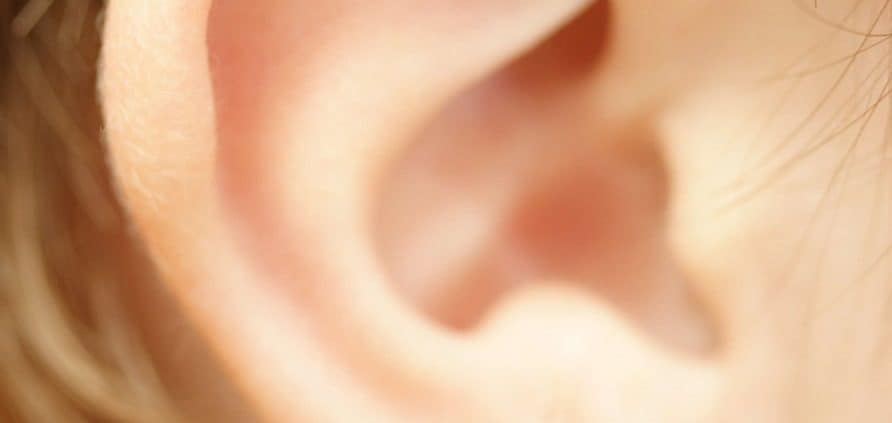Top Hearing Loss Causes That Are Preventable
Not all hearing loss is preventable, and most types of hearing loss cannot be completely reversed. However, this article talks about hearing loss causes that can absolutely be prevented. In this article, we specifically discuss noise-related hearing loss and the role of primary care in preventing hearing loss.
Noise-Related Hearing Loss
Possibly the most common of permanent hearing loss causes is repeated exposure to loud sounds and noises. Hearing loss caused in this way will usually develop slowly, painlessly, and symptomless over time, and most who suffer from noise-related hearing loss may not even notice it until it is too severe.
The good news is that this type of hearing loss can be prevented with a little bit of caution and attentiveness.
- Be aware of noise levels. Some people are more sensitive than others to loud sounds, but it is smart to be aware of noise levels and what can cause damage so that you can better plan and be prepared for exposure to certain sounds. Generally speaking, sounds above 85 decibels (dB) can cause damage with repeated exposure. A normal conversation is about 60dB, while a vacuum cleaner is 75dB and a rock concert is around 120dB.
- Avoiding harmful noises. Once you know what kinds of situations can cause harmful noise, it may be easier for you to avoid some of the more severe ones whenever possible. The louder the sound, the shorter amount of time you can safely be exposed to it.
- Wear protective devices. You won’t be able to avoid all damaging noises, but you can protect yourself when you know you will be exposed to them. Well-fitting earplugs or earmuffs can reduce up to 30dB. They should be worn the entire time you are exposed to the sounds.
- Don’t wait. You may already suffer from noise-related damage, but further damage can be prevented.
- Regular testing. Whether or not you think you are at risk for or have already developed hearing damage, regular checkups are so important for help with early detection and prevention.
Primary Prevention and Conductive Hearing Loss
The World Health Organization estimates that “half of all cases of hearing loss can be prevented through primary prevention.” In fact, the focus of International Ear Care Day 2014, according to an article “Ear care can avoid hearing loss,” is on prevention.
Conductive hearing loss is hearing loss that is the result of sound being inefficiently through the the parts of the ear. This type of hearing loss causes a reduction of one’s ability to hear faint sounds. There are several causes of conductive hearing loss, some of which include
- fluid in the middle ear
- ear infection
- perforated eardrum
- Swimmer’s Ear
- Impacted earwax
While not all of these causes can be prevented, this type of hearing loss can usually be corrected with medicine or surgery. However, some causes can be prevented.
Because so many childhood diseases can cause hearing loss, immunization against diseases such as measles, meningitis, rubella and mumps is a simple but important strategy in prevention. Avoidance of ototoxic drugs during pregnancy can also prevent damage to children in the middle ear.
Q-tip use can often worsen conductive hearing loss causes such as wax (cerumen impaction) or swimmer’s ear (otitis externa). Cerumen, in normal amounts, is healthy and offers many benefits. When it becomes impacted, it may push against the eardrum and hinder hearing. Q-tips, despite seeming beneficial, usually exacerbates the issue; doctors can offer a more helpful and careful cleaning that can more better improve hearing loss. Doctors may also prescribe medicated drops for your ears.
Self-cleaning (with cotton swabs or bobby pins) can also worsen swimmer’s ear, along with exposure to water and diabetes that is not carefully controlled. Swimmer’s ear, a common cause of hearing loss, can be prevented by avoiding self-cleaning, wearing earplugs when swimming, and controlling diabetes.
While adults can also get ear infections, chronic ear infection (otitis media) is one of the main causes of hearing loss in children. Ear infections happen when there is an inflammation in the middle ear where fluid gathers behind the eardrum. They often occur after other illnesses, such as sore throats or upper respiratory infections, and repeated infections or fluid remaining long-term in the middle ear can have an impact on hearing.
The National Institute on Deafness and Other Communication Disorders (NIDCD) says the best way to prevent chronic otitis media is to reduce its risk factors. Some of these steps include:
- Flu vaccines for your child every year.
- Vaccinate your child with the 13-valent pneumococcal conjugate vaccine, or PCV13, which protects against many types of bacteria that causes infection. Studies show that children who are vaccinated get significantly fewer ear infections than unvaccinated children.
- Keep sick children away from each other.
- Keep babies away from cigarette smoke.
Again, there are any hearing loss causes that are not preventable, but it is important to educate yourself on those hearing loss causes that can be. Getting your hearing tested on a regular basis is crucial in prevention. Please contact us if you have any questions or would like to set up a screening.




I liked what you said about how regular ear testing is important for detecting issues and preventing issues before they become a bigger problem. My family hasn’t been too good about visiting the ear doctors because we feel we can hear fine. I will be sure to start scheduling hearing test appointments with a local service so that I can make sure that my hearing and my children’s hearing remain safe and functional.
Thank you for explaining that sound above 85 decibels can negatively affect hearing. My mother used to go to a lot of concerts when she was younger and now she’s experiencing hearing loss. I think it would be a smart idea if I took her to a place where she can get her hearing tested.